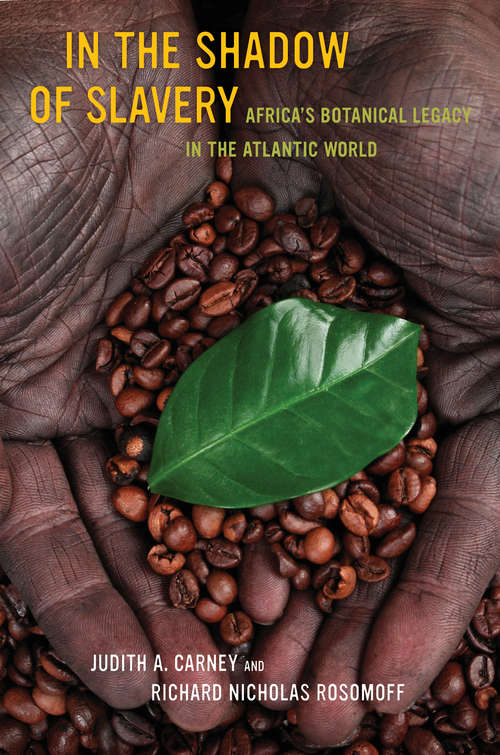In the Shadow of Slavery: Africa's Botanical Legacy in the Atlantic World
By:
Sign Up Now!
Already a Member? Log In
You must be logged into Bookshare to access this title.
Learn about membership options,
or view our freely available titles.
- Synopsis
- The transatlantic slave trade forced millions of Africans into bondage. Until the early nineteenth century, African slaves came to the Americas in greater numbers than Europeans. In the Shadow of Slavery provides a startling new assessment of the Atlantic slave trade and upends conventional wisdom by shifting attention from the crops slaves were forced to produce to the foods they planted for their own nourishment. Many familiar foods--millet, sorghum, coffee, okra, watermelon, and the "Asian" long bean, for example--are native to Africa, while commercial products such as Coca Cola, Worcestershire Sauce, and Palmolive Soap rely on African plants that were brought to the Americas on slave ships as provisions, medicines, cordage, and bedding. In this exciting, original, and groundbreaking book, Judith A. Carney and Richard Nicholas Rosomoff draw on archaeological records, oral histories, and the accounts of slave ship captains to show how slaves' food plots--"botanical gardens of the dispossessed"--became the incubators of African survival in the Americas and Africanized the foodways of plantation societies.
- Copyright:
- 2011
Book Details
- Book Quality:
- Publisher Quality
- ISBN-13:
- 9780520949539
- Related ISBNs:
- 9780520269965
- Publisher:
- University of California Press
- Date of Addition:
- 01/05/18
- Copyrighted By:
- The Regents of the University of California
- Adult content:
- No
- Language:
- English
- Has Image Descriptions:
- No
- Categories:
- History, Nonfiction
- Submitted By:
- Bookshare Staff
- Usage Restrictions:
- This is a copyrighted book.
